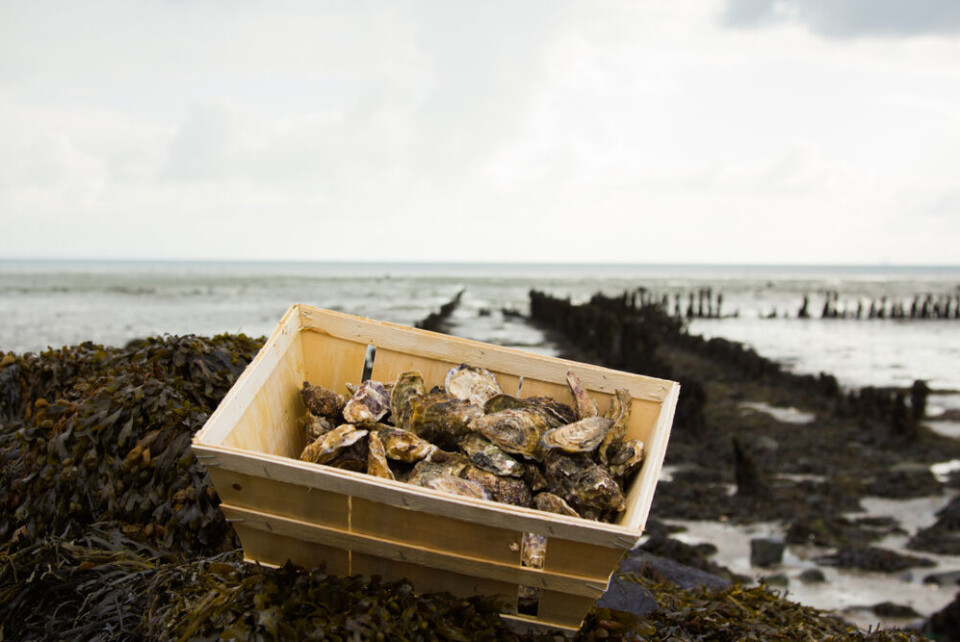-
More communes in France distribute Asian hornet traps
Residents are increasingly receiving help, with now the best time to capture the queens
-
Rugby vocabulary to know if watching the Six Nations in France
From un tampon to une cathédrale, understand the meaning of key French rugby terms
-
French senate to debate introduction of banned farm pesticides
The pesticides are part of the controversial neonicotinoids family
Wastewater in sea blamed for oyster ban in France
The industry has called for compensation after the suspension of sales, which will cost oyster farmers ‘millions of euros’, said a representative

Oyster farmers in northwest France say they will ‘refuse to pay for polluters’ after sales of oysters were suspended in the region due to reports of norovirus in seawater.
The farmers say that they are being penalised for the actions of others, and claim that the norovirus has come from the dumping of wastewater into the sea.
Oysters from the departments of Manche, Calvados, Gironde and Morbihan have been suspended from sale since December 29, 2023, following the detection of the norovirus in several farm areas of water. Norovirus causes serious gastroenteritis.
Read more: Recap: contaminated oysters and seafood recalled in France
President of the industry’s regional committee, Thierry Hélie, said that the norovirus contamination was not due to producer failings, and that farmers in Normandy last year had in fact obtained the IGP label as a sign of good practice. He said that, instead, the contamination had come from wastewater.
“We will not foot the bill for wastewater treatment plants,” he told Le Figaro, adding that it is up to the government to “face up to its responsibilities”.
Millions in losses
The industry is now calling for compensation as a result of the sale suspension and associated losses.
“Our losses are considerable. Until the ‘polluter-pays’ principle really applies in France, we're still waiting for guarantees from the government on compensation,” said Mr Hélie. The industry president has been holding crisis meetings with local producers since the start of the year.
“Between the return of the products banned from sale, the cancelled orders, the costs incurred and the future failure to sell, the loss is already enormous,” he said. “We're still putting a figure on it, but it will be several million euros.”
Some producers will experience losses of 40-60% their usual sales, he said, as oysters are typically popular over the Christmas and New Year period.
President of the Normandy region, Hervé Morin, has also called for a response. In a letter sent to the relevant ministers last weekend, he wrote: “In particular, I expect the Junior Minister for the Sea, Hervé Berville, to provide swift, clear and precise answers to the demands made by oyster farmers.”
The MP for Manche, Philippe Gosselin, has also called on the minister “to find appropriate support” for the industry and to organise an “emergency meeting”.
David Margueritte, president of the Cotentin district, said:“Shellfish farmers affected by this sales ban cannot absorb the shock of this situation on their own.”
Response ‘not good enough’
Junior minister Mr Berville has already admitted that producer actions are not to blame for the contamination. He said: “The number one challenge is for local authorities to invest in wastewater treatment systems.”
But Mr Hélie said that this response was “not good enough” and that the industry was instead “waiting for concrete actions, not words”. He added that his committee had invited Prime Minister Elisabeth Borne to a meeting, along with local prefects, to discuss the issue but “had no response” yet.
Oysters from Normandy (which produces 26,000 tonnes per year) represent 25% of the oysters sold in France annually across 350 farms and 7,000 direct and indirect jobs.
No cases of contamination in humans has been reported as a result of the norovirus reports, and most oysters from the area will not have been affected.
Related articles
Shellfish ban after food poisoning cases in south-west France
Empty oyster shells recycled into innovative products in France
























